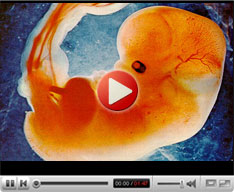
Know Infertitlity
Infertility treatments
Diagnosing InfertilityMale:
Obstetrics and Gynaecology
Infertility Treatment Services
Andrology |
DFI/ SCSA
The Sperm Chromatin Structure Assay (SCSA) is a well established technique that assesses the percentage of sperm with high levels of DNA fragmentation, also known as the DNA Fragmentation Index (% DFI) as well as the percent of sperm with abnormal proteins and morphology that inhibit fertilizationusing established methods. Determination of the sperm DNA fragmentation index is helpful as it ensuresthe selection of an appropriate fertility treatment from the very beginning, thereby avoiding months of therapy and other treatments, which retrospectively are pretty expensive and yet yield unsuccessful results.The SCSAtest results indicate that sperm with high levels of DNA fragmentation have less chances of supporting a successful pregnancy. Causes of elevated levels of DNA fragmentationDNA fragmentation in sperm may result from various factors such as certain diseases, oxidative stress, diet, drug intake, elevated testicular temperature, high fever, cigarette smoking air pollution and increasing age (above the age of 40). SCSA Procedure and DFIThe SCSA test is carried out using an instrument called the flow cytometerin which cells are stained with a fluorescent dye and then passed through a glass channel in liquid suspension. These cells are them subjected to a laser beam which causes the dye to emit fluorescent light of a specific color. Here sperms with very low levels of DNA fragmentation fluoresce green, while those with moderate to high levels of DNA fragmentation fluoresce red. The flow cytometer measures the ratio of red to green fluorescence in each of 5000 sperms. The percent of sperm with DNA fragmentation is then expressed in terms of DNA Fragmentation Index. In order to achieve the most effective measurement of male fertility potential, the SCSA test results show the percentage of four major populations of sperm present in a semen sample:
Ideal candidates for SCSA TestingSCSA test is normally recommended for those with:
Advantages of SCSAWhile semen analysis has always been carried outto analyze for male fertility, the introduction of SCSA offers multiple advantages over conventional semen analysis for a number of reasons. Foremost, the SCSA can measure 5000 sperms in a matter of seconds and the highly accurate data provides both a diagnostic evaluation of the male's potential for infertility. Another advantage is that SCSA randomly measures all cell types in the semen sample as opposed to evaluation of only washed samples. Moreover the prognostic information obtained from the SCSA tests provides a significant medical and financial benefit to couples considering procedures like donor sperm, ART and adoption. In addition to evaluating DFI, the SCSA test is also done to identify a fraction of sperm with High DNA Stainability (HDS). HDS sperm are considered to be immature with poorly condensed chromatin and unprocessed nuclear proteins. SCSA results indicate that semen samples with a high percentage of HDS sperm havelesser fertilization rates with conventional IVF. |
Our TeamNews & EventsClinic LocationVideo Gallery |















